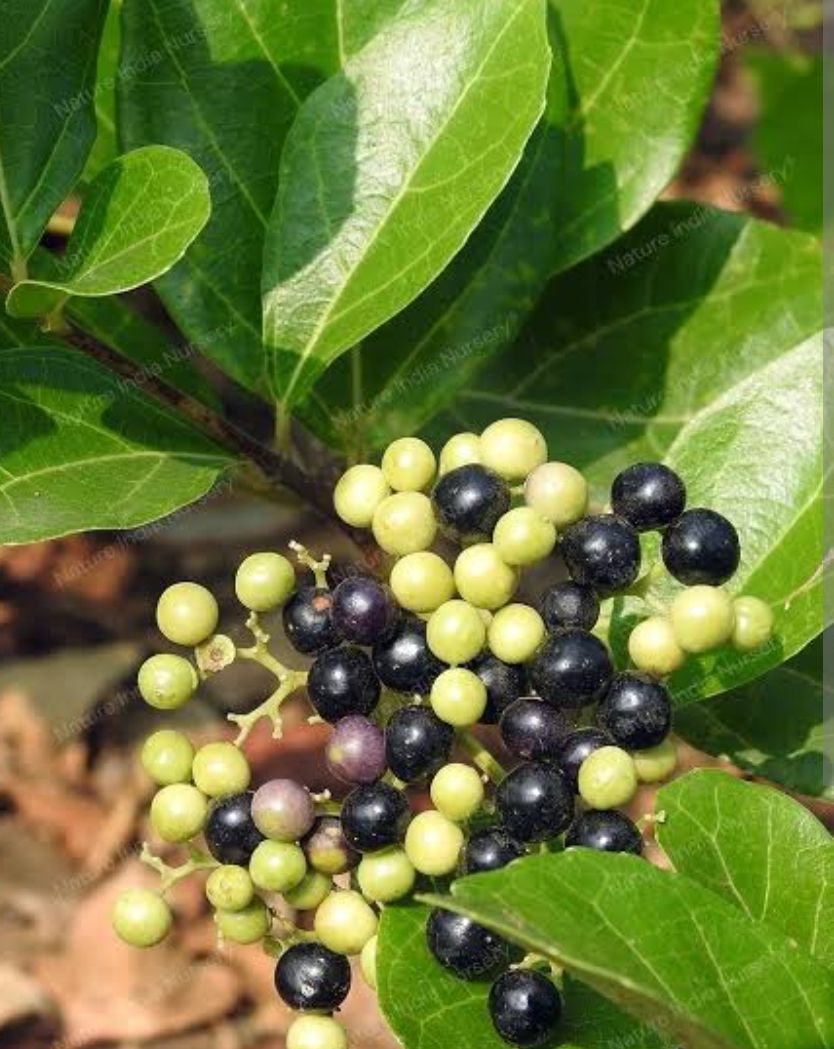Premna
Native to Australia, India and much of Asia.
Headache Tree – most widely used, from its folk use in treating headaches.
Coastal Premna – used in botanic gardens and landscaping references.
False Elder – occasional name, since its foliage resembles elder (Sambucus).
Black Premna – sometimes used because of its dark berries.
Premna serratifolia is a hardy, large spreading shrub with attractive glossy, leathery leaves. In summer it produces showy clusters of cream-white flowers, followed by shiny black berries that attract birds and wildlife. An excellent choice for tropical and subtropical gardens, it provides shade, habitat, and year-round greenery.
Features:
Fast-growing, large spreading shrub
Glossy, leathery evergreen leaves
Clusters of cream-white flowers in season
Black berries loved by birds
Hardy and low-maintenance
Growing Info:
Position: Full sun to part shade
Height: 3–5 m (can be pruned smaller)
Tolerates coastal conditions and a range of soils
Excellent for hedges, screens, or feature planting
A versatile and attractive shrub that thrives in warm climates, bringing both beauty and wildlife into your garden.
Edibility for people: ★☆☆☆☆ (1/5)
Small, black drupes with very little flesh, bitter or bland. Traditionally not eaten as a fruit crop.
Wildlife value: ★★★★☆ (4/5)
Birds (especially pigeons, bulbuls, starlings) eat the berries readily and help spread the seeds.
Ornamental value: ★★★☆☆ (3/5)
The clusters of berries can look attractive, especially against the glossy foliage.
Medicinal/Traditional uses: ★★★★☆ (4/5)
Leaves, bark, and roots are widely used in Ayurveda and folk medicine.
Valued medicinal plant in Ayurveda (where it’s one of the Dashamoola group of ten roots).
INDIAN NAMES
Sanskrit: Agnimantha (अग्निमन्थ), Arani
Hindi: Arni (अरणी)
Marathi: Arni
Gujarati: Arni
Tamil: Munneri, Thalai-ari, Vellai-munnir
Telugu: Munnaga, Munnara
Kannada: Munneri, Munnare
Malayalam: Munneri, Arani
Bengali: Arani
Oriya (Odia): Arani
Assamese: Gani
